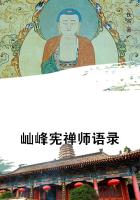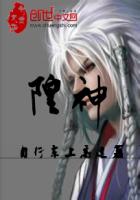When I sent up my card to his room at the hotel his answer was:
"Come up immediately." He was shaving and had on the minimum of clothes permissible to receive a visitor. He was expecting me and started in at once with an eloquent description of the attractions and importance of the mission to Japan. With the shaving brush in one hand and the razor in the other he delivered an oration.
In order to emphasize it and have time to think and enforce a new idea, he would apply the brush and the razor vigorously, then pause and resume. I cannot remember his exact words, but have a keen recollection of the general trend of his argument.
He said: "I am surprised that a young man like you, unmarried and with no social obligations, should hesitate for a moment to accept this most important and attractive position. If you think these people are barbarians, I can assure you that they had a civilization and a highly developed literature when our forefathers were painted savages. The western nations of Europe, in order to secure advantages in this newly opened country for commerce, have sent their ablest representatives. You will meet there with the diplomats of all the western nations, and your intimacy with them will be a university of the largest opportunity.
You will come in contact with the best minds of Europe. You can make a great reputation in the keen rivalry of this situation by securing the best of the trade of Japan for your own country to its western coasts over the waters of the Pacific. You will be welcomed by the Japanese Government and the minister of foreign affairs will assign you a palace to live in, with a garden attached so perfectly appointed and kept as to have been the envy of Shenstone. You will be attended by hundreds of beautiful and accomplished Japanese maidens."When I repeated to a large body of waiting office-seekers who had assembled in my room what Mr. Burlingame had said, they all became applicants for the place.
There is no more striking evidence of the wonderful advance in every way of the Japanese Empire and its people than the conditions existing at that time and now. Then it took six months to reach Japan and a year for the round trip. Of course, there was no telegraphic or cable communication, and so it required a year for a message to be sent and answered. The Japanese army at that time was mostly clad in armor and its navy were junks.
In fifty years Japan has become one of the most advanced nations of the world. It has adopted and assimilated all that is best of Western civilization, and acquired in half a century what required Europe one thousand years to achieve. Its army is unexcelled in equipment and discipline, and its navy and mercantile marine are advancing rapidly to a foremost place. It demonstrated its prowess in the war with Russia, and its diplomacy and power in the recent war.
Japan has installed popular education, with common schools, academies, and universities, much on the American plan. It has adopted and installed every modern appliance developed by electricity--telegraph, cable, telephone, etc.
While I was greatly tempted to reverse my decision and go, my mother, who was in delicate health, felt that an absence so long and at such distance would be fatal, and so on her account I declined.
As I look back over the fifty years I can see plainly that four years, and probably eight, in that mission would have severed me entirely from all professional and business opportunities at home, and I might have of necessity become a place holder and a place seeker, with all its adventures and disappointments.
If I had seriously wanted an office and gone in pursuit of one, my pathway would have had the usual difficulties, but fickle fortune seemed determined to defeat my return to private life by tempting offers. The collectorship of the port of New York was vacant. It was a position of great political power because of its patronage. There being no civil service, the appointments were sufficientIy numerous and important to largely control the party in the State of New York, and its political influence reached into other commonwealths. It was an office whose fees were enormous, and the emoluments far larger than those of any position in the country.
The party leaders had begun to doubt President Johnson, and they wanted in the collectorship a man in whom they had entire confidence, and so the governor and State officers, who were all Republicans, the Republican members of the legislature, the State committee, the two United States senators, and the Republican delegation of New York in the House of Representatives unanimously requested the president to appoint me.
President Johnson said to me: "No such recommendation and indorsement has ever been presented to me before." However, the breach between him and the party was widening, and he could not come to a decision.
One day he suddenly sent for Senator Morgan, Henry J. Raymond, Thurlow Weed, and the secretary of the treasury for a consultation.
He said to them: "I have decided to appoint Mr. Depew." The appointment was made out by the secretary of the treasury, and the president instructed him to send it to the Senate the next morning.
There was great rejoicing among the Republicans, as this seemed to indicate a favorable turn in the president's mind. Days and weeks passed, however, and when the veto of the Civil Rights Bill was overridden in the Senate and, with the help of the votes of the senators from New York, the breach between the president and his party became irreconcilable, the movement for his impeachment began, which ended in the most sensational and perilous trial in our political history.















